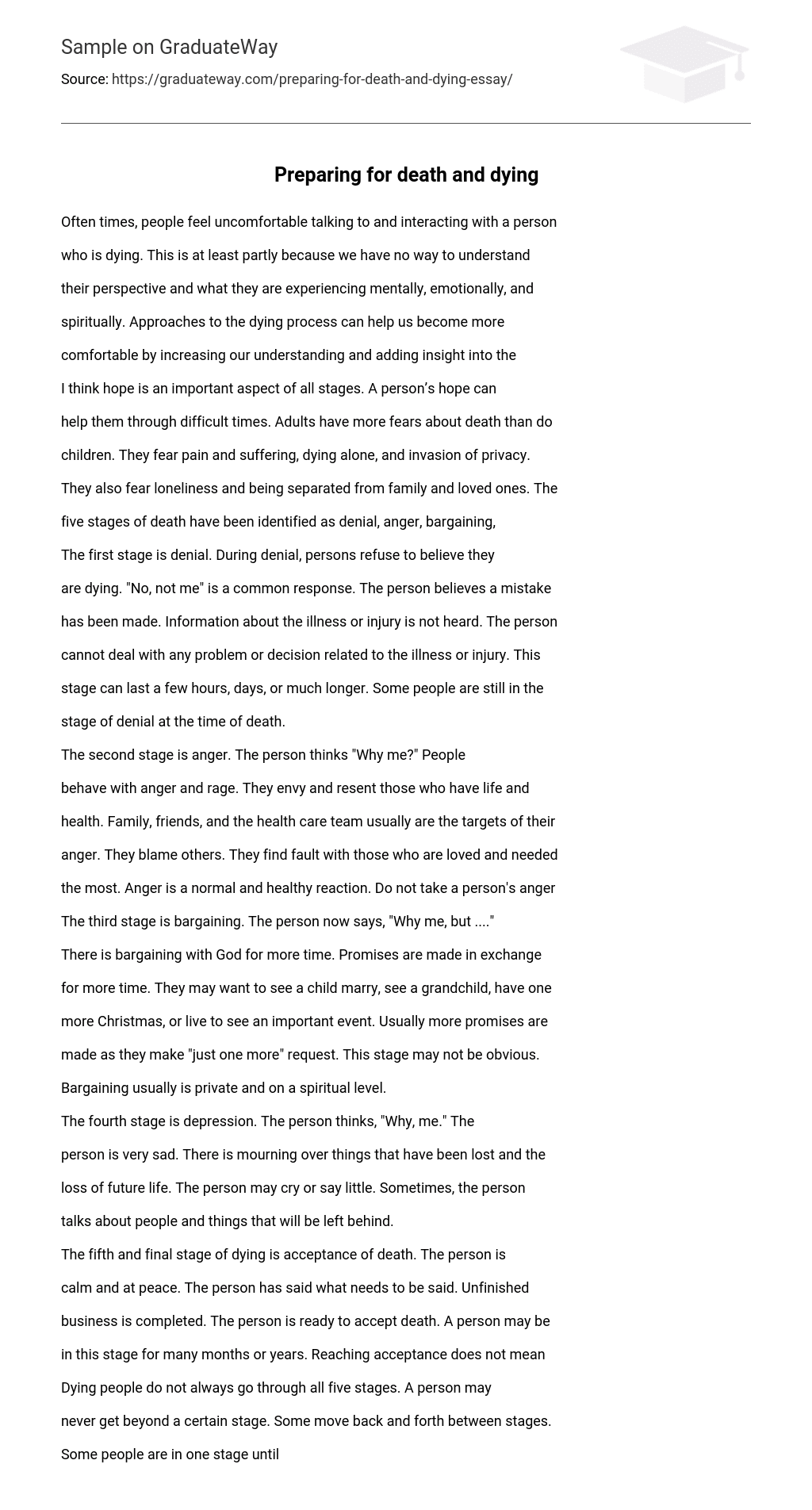When interacting with individuals nearing the end of their life, many people struggle to communicate and form connections. One obstacle is our limited understanding of their perspective and the mental, emotional, and spiritual experiences they undergo. Approaches to the dying process can alleviate this difficulty by improving comprehension and offering insight into the various stages. It is important to acknowledge that hope plays a vital role in these stages, serving as a source of strength during challenging times. Adults often have more concerns and fears about death compared to children, such as pain and suffering, dying alone, and loss of privacy. Additionally, adults worry about feelings of loneliness and being separated from their family and loved ones.
The five stages of death are denial, anger, bargaining, depression, and acceptance. Denial is the initial stage where individuals reject their imminent death. They often express phrases like “No, not me” and refuse to acknowledge any errors. They disregard information about their illness or injury and struggle with addressing related matters. Denial can last for varying periods – a few hours, days, or even until their eventual demise in some cases.
The second stage of the grieving process involves feelings of anger and rage towards those who still have a good life and health, such as family, friends, and healthcare team. The person questions why they are going through this experience and blames others, finding faults in the people they love and rely on. It is important not to take their anger personally as it is a normal reaction.
Moving on to the third stage, called bargaining, the person starts to negotiate with a higher power for more time by saying “Why me, but …”. They make promises in exchange for additional time, like wanting to witness important events or milestones in their loved ones’ lives. This stage usually occurs privately and on a spiritual level as individuals seek control over their circumstances by making “just one more” request.
The fourth stage of the dying process is characterized by depression, during which the individual may ask themselves, “Why me?” They experience deep sadness and mourn the loss of what has been and what will be. This may manifest through crying or becoming withdrawn. The person may also express concern for people and things they will leave behind. The fifth and final stage is acceptance of death, during which the individual becomes calm and finds peace. They have expressed their final thoughts and resolved any unfinished matters.
The individual is prepared to embrace mortality, which can last for a significant duration. Attaining acceptance does not guarantee that individuals will experience all five stages. Some may remain in a particular stage indefinitely or transition between stages. Certain individuals remain in one stage until their death, which can occur within minutes, hours, days, or weeks. During this time, there is a notable decline in bodily functions, weakness, and alterations in consciousness.
The family will experience a difficult period, and it may be challenging to find words that provide them consolation. However, you can demonstrate your support to the family by being present and considerate. Additionally, I have always had a fear of dying, which has created a sense of curiosity and intrigue about what comes after. This fascination is one reason why I chose to pursue a career in nursing – not because of death itself, but because I wanted to assist patients who are frightened and undergoing the process of dying. The ability to offer comfort to these individuals is incredibly meaningful to me.





